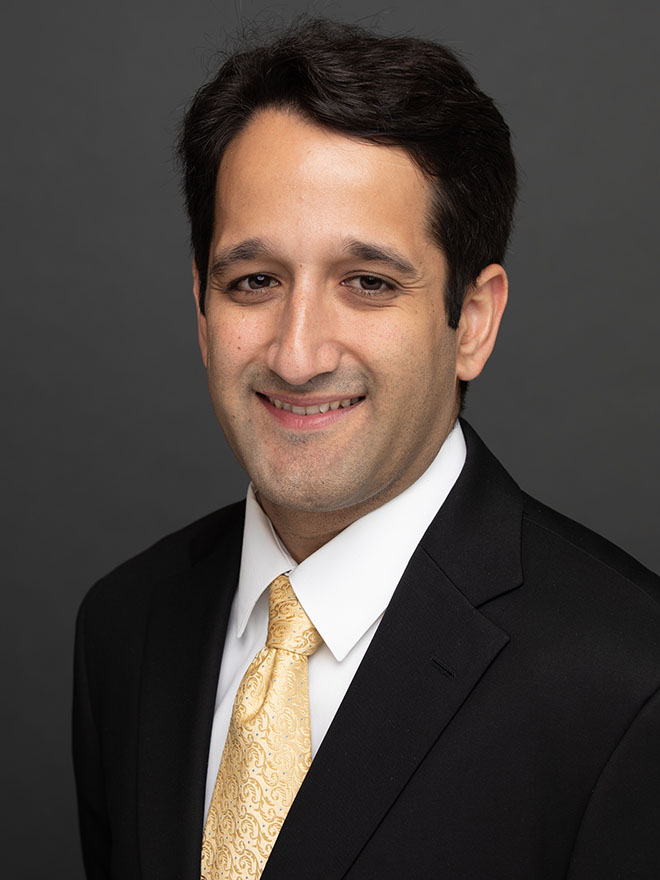
How can addressing social factors like food and housing insecurity affect the healthcare outcomes of low-income populations and the healthcare systems designed to serve them?
It’s a complex question, and one that Rajan Sonik, PhD’17, is in a unique position to take on. As director of research at the Institute for Health Equity at AltaMed Health Services, Sonik is in the early stages of building a research division that will leverage AltaMed’s clinical presence (it’s one of the largest federally qualified health centers in the country, with over 250,000 patients) to improve healthcare systems for underserved populations.
“It’s exciting and daunting because it’s a huge open question,” says Sonik. “If we can get it right and show some preliminary outcomes that are positive, this is going to be tremendously important work.”
Since joining AltaMed in August 2019, Sonik has been busy assembling his staff and diving into research projects and collaborations. In May, he helped secure a $2 million grant from the National Institute on Minority Health and Health Disparities to study the effects of the Supplemental Nutrition Assistance Program (SNAP) on healthcare disparities, and his team is currently involved in several COVID-related studies, including one examining the relationship between the virus and homelessness.
“For people who are unhoused, telling them ‘stay at home,’ or ‘keep distant from other people,’ isn’t practical or relevant,” Sonik explains. “How do we work an understanding of housing status into the type of advice that’s given around COVID?"
Sonik’s interest in how social factors impact health was sparked when, as an undergraduate at Harvard University, he learned that a young woman with sickle cell disease he was mentoring was hospitalized with a pain episode. The trigger of this episode turned out to be stress—she had recently been told that her Supplemental Security Income benefits were being cut off, and that she owed back payments to the government. Sonik helped the woman secure legal help, which fixed the problem, and her health issues.
“Seeing her in extreme pain in the hospital was a very visceral picture of the social determinants of health and the human cost,” he recalled. “I remember thinking, ‘How many tens of thousands of dollars did Medicaid have to spend on her hospitalization because of this social issue?’ That was a piece that I felt was not being captured.”
The experience motivated Sonik to pursue degrees in public health and law, after which he worked as a legal aid attorney advocating on behalf of children with sickle cell disease facing issues such as housing discrimination and the wrongful termination of their public benefits. In 2014, he enrolled in Heller’s PhD program, determined to gain the research skills to change systems he felt were both inhumane and economically unsound.
Sonik credits Heller with equipping him with the technical tools and creative problem-solving skills necessary to conduct health services research in the context of social policy. The latter has proven especially useful in his current role, where questions are nuanced and data sets aren’t always straightforward.
“Having the ability to run a regression or pick which econometric model you're going to use is critical, but it's not enough,” Sonik says. “Social issues are complex and messy and require creative thinking—Heller prepared me for that.”
At AltaMed, Sonik is drawing on all of his experiences, and reaching out to his Heller mentors, as he works to build a robust research program. At times, the experience is like building a plane in mid-air, he said, but he enjoys the challenge.
“It just tickles different parts of my brain every single day,” he says. “I go from trying to code and think about what the right model is to grant writing, to being in a meeting about implementation. You're not going to be bored in a position like that.”
